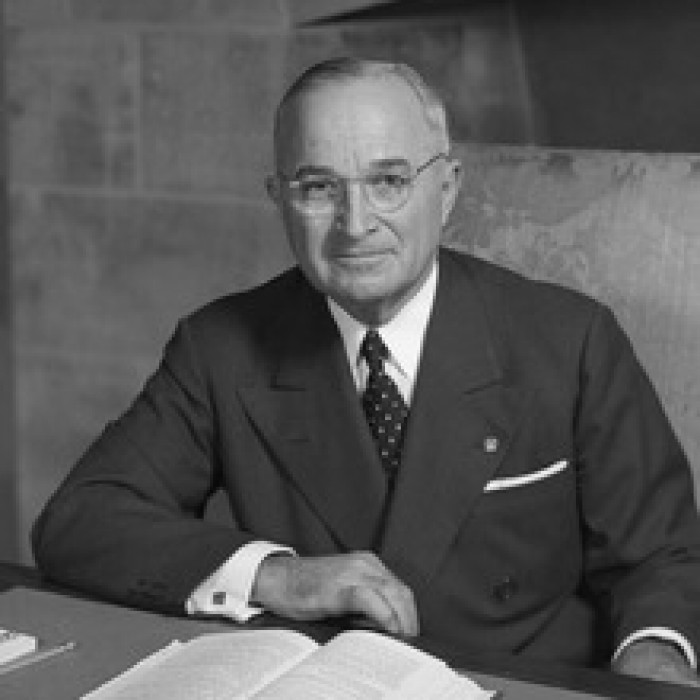
Harry S. Truman (May 8, 1884 – December 26, 1972) was an American politician who served as the 33rd President of the United States (1945–53). He served as a United States Senator from Missouri (1935–45) and briefly as Vice President (1945) before he succeeded to the presidency on April 12, 1945 upon the death of Franklin D. Roosevelt. He was president during the final months of World War II, and approved the plan to drop atomic bombs on Hiroshima and Nagasaki.
Truman was elected in his own right in 1948. He presided over an uncertain domestic scene as America sought its path after the war and tensions with the Soviet Union increased, marking the start of the Cold War.
Truman's presidency was a turning point in foreign affairs, as the United States engaged in an internationalist foreign policy and renounced isolationism. Truman helped found the United Nations in 1945, issued the Truman Doctrine in 1947 to contain Communism, and got the $13 billion Marshall Plan enacted to rebuild Western Europe. The Soviet Union, a wartime ally, became a peacetime enemy in the Cold War. Truman oversaw the Berlin Airlift of 1948 and the creation of NATO in 1949.

1564 - 1616

1803 – 1882

1854 – 1900

1942 – 2016

1928 – 2014

1835 – 1910

1869 – 1948

1884 – 1962
1898 – 1963

1929 – 1993

1879 – 1955

1809 – 1865

1807 – 1870

1800 – 1859

1795 – 1821

1755 – 1793

1984 -

1989 – 2011

1943 – 2001

1815 – 1902

1929 – 1994

1767 – 1848
